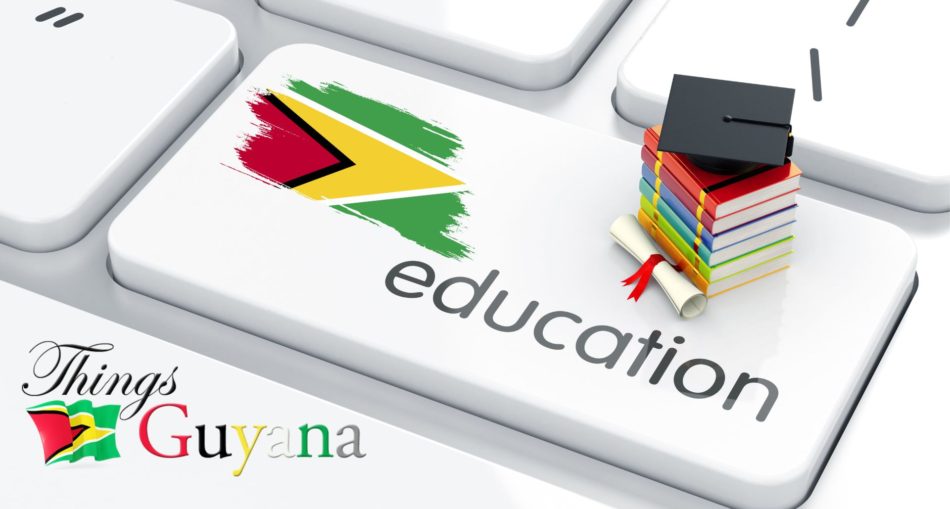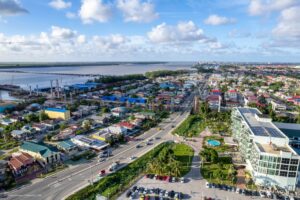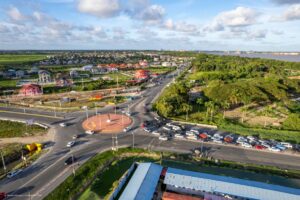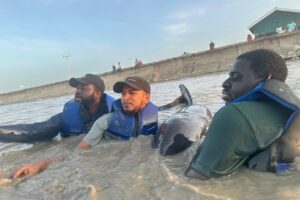Education is essential for promoting innovation, creativity, and social progress in Guyana. Education is the process of acquiring knowledge, skills, values, beliefs, and habits through various means, such as teaching, training, research, or self-study. It is typically provided by schools, universities, and other educational institutions but can also be obtained informally through life experiences. Education typically includes the formal instruction of subjects such as math, science, language, history, and social studies, but it can also include more general skills such as critical thinking, problem-solving, and decision-making. Education can take place in a variety of settings, including traditional classroom environments, online platforms, and through experiential learning opportunities such as internships or apprenticeships. Its main goal is to develop the cognitive, social, emotional, and physical abilities of the learner so they can become a responsible and productive member of society.
“Education is the passport to the future, for tomorrow belongs to those who prepare for it today.” —Malcolm X.
5 Reasons why education is important?
Education is important because it equips individuals with the knowledge, skills, and competencies they need to be productive members of society. It also provides opportunities for personal growth and development and can lead to better employment prospects and higher earning potential. Furthermore, education is essential for the advancement of society and the economy as a whole. It enables individuals to engage in critical thinking, problem-solving, and decision-making and helps to promote innovation, creativity, and social progress.
Education is essential for Guyanese because we are a developing country, and as such, there are a number of knowledge and skill gaps in our society. While knowledge importation is possible, a sense of total ownership becomes present in projects when they can be executed with 100% Guyanese skills.
Education is closely related to the wealth of a country in several ways:
- Economic growth: Education is a key driver of economic growth, as it equips individuals with the knowledge, skills, and competencies they need to participate in Guyana’s workforce and contribute to the economy. Countries with higher levels of education tend to have higher economic growth and per capita income.
- Productivity: Educated individuals tend to be more productive than those with less education, which can lead to increased economic output and higher levels of wealth for the country as a whole.
- Innovation: Education plays a crucial role in fostering innovation by providing individuals with the knowledge, skills, and competencies they need to generate new ideas and develop new technologies, products, and processes. This can lead to new industries and increased economic growth.
- Human Capital: Education is an important investment in human capital, which is the knowledge, skills and abilities of the labor force that can be used to produce goods and services. By investing in education, a country can increase the productivity of its labor force, which will contribute to the country’s wealth.
- Social and political stability: Education can also contribute to a country’s wealth by promoting social and political stability. Educated individuals tend to be more informed, engaged citizens who are more likely to participate in the democratic process and less likely to be involved in social unrest. This can lead to a more stable and prosperous society.
Overall, education is a key driver of economic growth, development, and innovation and is closely related to the wealth of a country. Countries that invest in education tend to experience increased economic growth, higher levels of productivity, and improved standards of living for their citizens.
The link between Education & Innovation
Education and innovation are closely related, as education plays a crucial role in fostering innovation by providing individuals with the knowledge, skills, and competencies they need to generate new ideas and develop new technologies, products, and processes.
Education provides individuals with the foundational knowledge they need to understand and navigate the rapidly changing world around them. By providing access to information and resources, education enables individuals to explore new ideas, develop new perspectives, and think creatively. This, in turn, encourages the development of new technologies, products, and processes.
In addition, education helps to develop the critical thinking, problem-solving, and decision-making skills that are essential for innovation. It also provides individuals with the opportunity to learn from experts in a particular field, which can help to inspire new ideas and provide valuable guidance as they work to develop new technologies, products, and processes.
Moreover, education enables individuals to engage in critical thinking, problem-solving, and decision-making. It helps to promote innovation, creativity, and social progress by providing individuals with the knowledge, skills, and competencies they need to make meaningful contributions to their communities and society as a whole.
6 Ways of becoming Educated in Guyana
There are several ways to become educated, including:
- Formal education: This includes attending school, college, or university to receive instruction in a wide range of subjects. Formal education can take place in a traditional classroom setting or through online or distance learning programs. See the Ministry of Education website for more details on formal education in Guyana: https://education.gov.gy/en/
- Informal education: This includes learning through life experiences and self-study. Informal education can take place through activities such as reading, traveling, or participating in hobbies or community organizations.
- Non-Formal education: This type of education is organized and systematic but not necessarily part of the formal education system. Non-formal education can include apprenticeships, vocational training, or adult education programs. See the Board of Industrial Training website for much information on vocational or adult education programs: https://www.bit.gov.gy/training-offered/
- On-the-job training: This type of education occurs while an individual is working and is specific to the job or industry in which they are employed. On-the-job training can include mentoring, workshops, or on-site classes.
- Distance learning: This type of education allows individuals to study from a remote location, usually through online courses, correspondence courses, or other forms of distance education. See the University of Guyana, Institute of Distance and Continuing Education for details on distance learning in Guyana: https://idce.uog.edu.gy/
- Self-directed learning: This is when an individual takes responsibility for their own learning, setting their own goals and seeking out resources and opportunities to learn. A great place to do this is on platforms like Udemy (https://www.udemy.com/), Coursera (https://www.coursera.org/), and Skillshare (https://www.skillshare.com/en/).
Each of these options has its own advantages and disadvantages, and the best way to become educated will depend on an individual’s specific circumstances and goals.








1 Comment
Pingback: Why is a Good Salary Important in Guyana? - Things Guyana